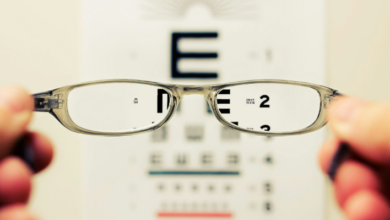
How Reiki Healing Affects Your Nervous System and Overall Health
Reiki healing is a holistic energy practice that has become widely recognized for its calming, healing effects on the body and mind. Originating in Japan, Reiki healing involves the transfer of universal energy through the hands of a trained practitioner to help align and balance the body’s natural energy. This energy work not only promotes relaxation but also plays a significant role in supporting the nervous system and overall health.
As more people explore complementary therapies like Reiki to improve their well-being, understanding how Reiki affects the nervous system can shed light on its therapeutic benefits. Let’s explore the ways Reiki healing supports the nervous system, helping to promote mental clarity, emotional stability, and physical health.
Nervous System and Its Role in Health
The nervous system is the body’s command center, controlling everything from movement and sensation to thoughts and emotions. It comprises two main parts: the central nervous system (CNS), which includes the brain and spinal cord, and the peripheral nervous system (PNS), which connects the CNS to the rest of the body.
Within the PNS, the autonomic nervous system (ANS) regulates involuntary functions, including heart rate, digestion, and respiratory rate. The ANS has two main branches: the sympathetic nervous system, which prepares the body for “fight or flight” in response to stress, and the parasympathetic nervous system, which promotes relaxation and healing.
When stress becomes chronic, the sympathetic nervous system may remain overactive, leading to various health issues such as high blood pressure, weakened immunity, and sleep disturbances. Reiki healing helps to activate the parasympathetic nervous system, facilitating relaxation and counteracting the effects of chronic stress.
How Reiki Healing Supports the Nervous System
Reiki healing works by guiding the body into a state of deep relaxation, encouraging the nervous system to shift from a stressed, overactive state to one of calm and balance. Here’s how Reiki positively influences the nervous system:
Activating the Parasympathetic Nervous System
During a Reiki healing session, the practitioner gently places their hands on or near the recipient’s body, channeling energy to areas of need. This intentional transfer of energy activates the parasympathetic nervous system, which allows the body to enter a “rest and digest” state. In this state, heart rate and blood pressure decrease, breathing becomes slower, and muscle tension is released. By helping the body switch into this relaxed mode, Reiki promotes physical recovery and mental clarity, essential components of overall health.
The parasympathetic response is vital for recovery and stress management, and regular Reiki sessions can reinforce this relaxation response, making it easier for the body to handle daily stressors without becoming overwhelmed.
Reducing Cortisol Levels and Managing Stress
Stress triggers the release of cortisol, the body’s primary stress hormone. While cortisol is beneficial in short bursts, chronic stress can lead to elevated cortisol levels, which may contribute to inflammation, fatigue, and mental health issues like anxiety and depression. Reiki healing has been shown to reduce cortisol levels by encouraging relaxation and calming the mind, reducing the impact of stress on the body.
Many clients who participate in regular Reiki sessions report feeling less stressed, more focused, and better equipped to handle emotional challenges. This stress reduction not only benefits the nervous system but also contributes to improved mood, sleep quality, and energy levels.
Impact of Reiki Healing on Emotional Health
Emotions have a profound effect on the nervous system, and unresolved emotions can create tension that disrupts physical health. Reiki healing provides a safe, supportive space for individuals to process and release emotional blockages, leading to better nervous system regulation and emotional well-being.
Balancing Energy Centers for Emotional Stability
In Reiki, practitioners often focus on energy centers, or chakras, that correspond to different aspects of physical and emotional health. Blocked or imbalanced chakras can lead to emotional and physical symptoms. For example, an imbalanced heart chakra may contribute to feelings of isolation or sadness, while an overactive solar plexus chakra might result in anxiety or stress.
By balancing these energy centers, Reiki healing can help stabilize emotions and foster a sense of inner calm. For instance, people in Arizona seeking balance may look to practices like reiki healing arizona for support in managing stress and emotional tension, to achieve a harmonious state that benefits both their mental and physical health.
Releasing Emotional Tension and Promoting Mental Clarity
Reiki healing allows individuals to release deep-seated eotional tension that may be stored in the body. These releases often occur naturally as the body relaxes and shifts to a more peaceful state. This emotional release can lead to increased mental clarity, improved focus, and a greater ability to respond calmly to future stressors. Regular Reiki sessions provide a cumulative effect, helping individuals maintain emotional equilibrium and respond to challenges with resilience.
Reiki Healing for Pain Management
Reiki is known for its positive impact on physical pain and overall health. Many clients find that Reiki healing complements other treatments, providing relief for chronic pain, inflammation, and other physical symptoms associated with an overactive nervous system.
Alleviating Chronic Pain and Muscle Tension
One of the primary ways Reiki healing benefits physical health is by reducing muscle tension. Chronic stress and emotional strain can lead to tension in the muscles and nerves, contributing to discomfort and pain. Reiki healing works to relax the body, helping release physical tightness and alleviate pain.
During a session, clients often feel warmth or tingling as the energy moves through tense or painful areas, providing relief. Studies have shown that Reiki can reduce pain levels, particularly for those suffering from chronic pain conditions. This pain reduction benefits the nervous system by decreasing the overall stress load, making it easier for the body to manage and recover from physical ailments.
Boosting Immune Function
By promoting relaxation and reducing stress, Reiki healing indirectly supports the immune system. Chronic stress weakens immunity, making the body more susceptible to illness. When the nervous system is balanced and the body is in a relaxed state, the immune system can function more effectively, allowing the body to heal and recover faster.
Reiki healing also helps reduce inflammation, a major contributor to many health conditions. By lowering stress levels and encouraging a calm, balanced nervous system, Reiki provides a supportive environment for the immune system to operate optimally, promoting better health overall.
Reiki Healing into Daily Life
Many people find that incorporating Reiki into their lives regularly helps them maintain a sense of calm and balance, even amid stress. Reiki sessions can be attended in person or practiced remotely. Reiki Healing Online offers a convenient alternative for those unable to visit a practitioner in person, allowing individuals to experience the benefits of Reiki from the comfort of their own homes.
Whether seeking a regular practice or occasional support, Reiki Healing is a versatile wellness tool that can be adapted to individual needs and schedules. Some practitioners also recommend practicing mindfulness or meditation alongside Reiki, as these practices complement each other, enhancing relaxation and supporting nervous system health.
Conclusion
Reiki healing is a gentle yet powerful practice with profound effects on the nervous system and overall health. By promoting relaxation, reducing cortisol levels, and fostering emotional balance, Reiki helps the nervous system transition from a state of stress to one of calm and recovery. This shift not only enhances mental clarity and emotional resilience but also supports physical healing, pain management, and immune function.
For those seeking a holistic approach to well-being, Reiki healing offers a path to greater balance and self-awareness. Whether pursued regularly or occasionally, Reiki can be a valuable component of a healthy lifestyle, helping individuals manage stress, process emotions, and ultimately improve their quality of life. As interest in Reiki continues to grow, its role in supporting nervous system health and overall wellness becomes even more apparent, providing a natural, complementary approach to achieving lasting harmony.



